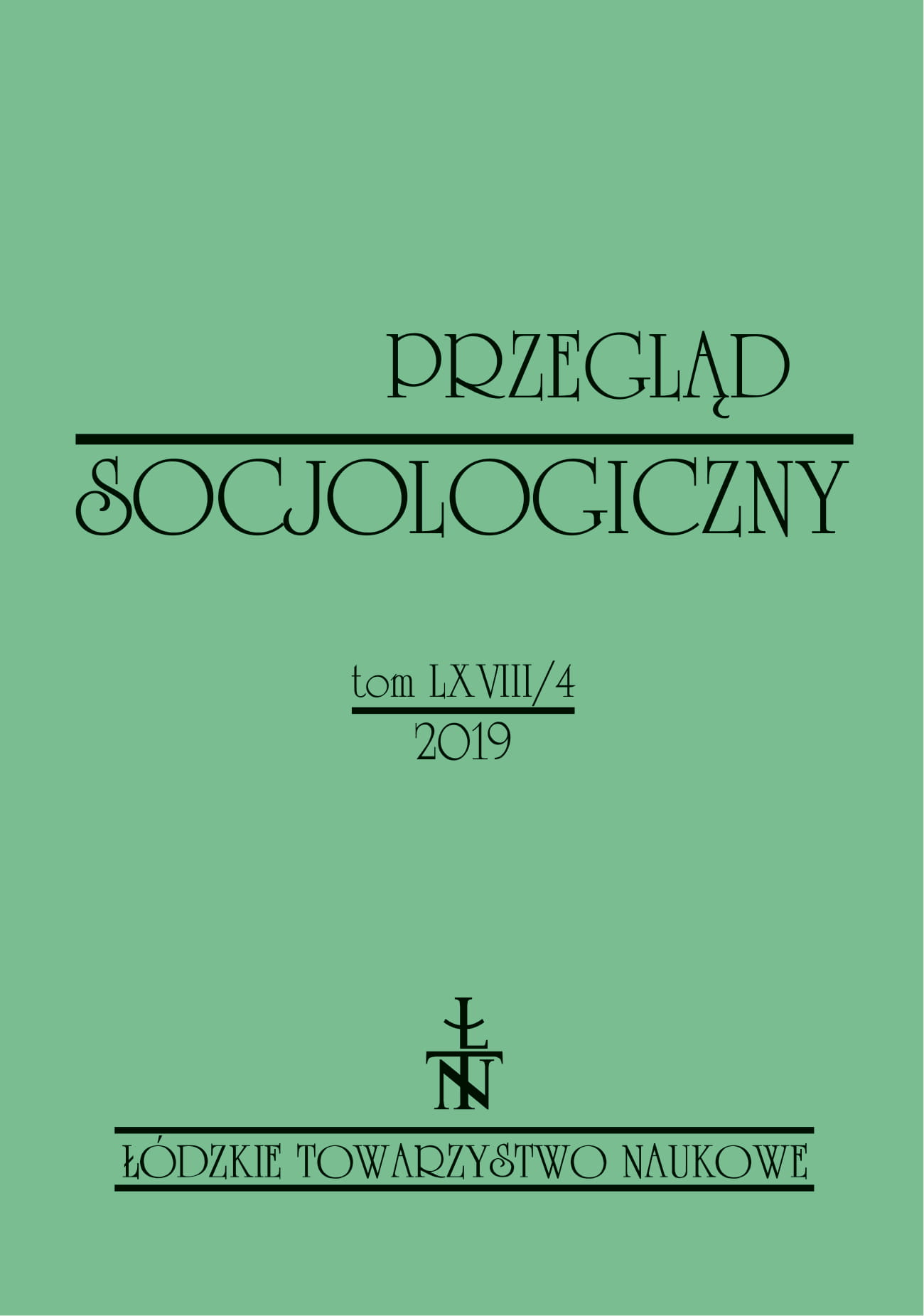Emotions in The Polish Peasant…. Researcher’s reminiscences based on the authobiography of Władek
DOI:
https://doi.org/10.26485/PS/2019/68.4/4Keywords:
W.I. Thomas, F. Znaniecki, sociology of emotions, biographical analysis, F. SchützeAbstract
The article aims to answer the questions about the specificity of the presence of emotions in the classic autobiography of Władek, published in: The Polish Peasant in Europe and America (1918), by William Thomas and Florian Znaniecki, a work which has inspired researchers for a hundred years. The authors presented the issues from three different perspectives: (a) theoretical assumptions of sociology by Znaniecki and Thomas, (b) cognitive orientation rooted in research questions and the image of the world of the early twentieth century, and (c) issues of autobiographical analysis interpreted in conjunction with contemporary assumptions of analysis formulated by Fritz Schütze. Apart from questions strictly related to the work of Thomas and Znaniecki, the analysis also includes elements of interpretation of the contemporary evolution of sociology of emotions, leading to the formulation of a simplified description of the evolution of biographical analysis. The conclusions aim to make an instrumental treatment of emotions both in the traditional Thomas and Znaniecki texts and in the contemporary example. This suggests, among other things, a certain level of incompatibility of studies on emotions to classical and selected contemporary research studies, but also allows us to conclude about the status of The Polish Peasant..., not so much as a canonical work, but rather a breakthrough for both problems. In the latter case, the attention to emotions was directly related to the evolution of sociological reflection towards individualization (in terms of approach) and towards symbolic interactionism.



